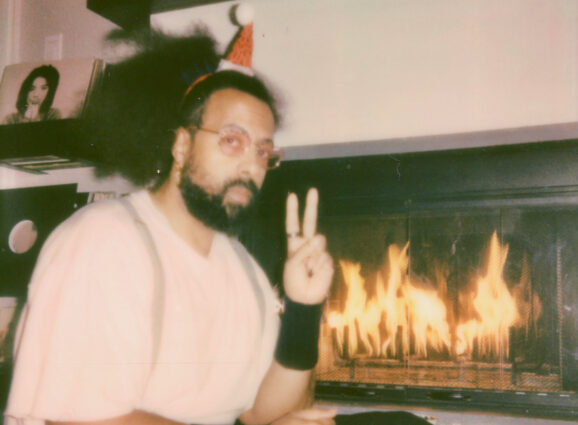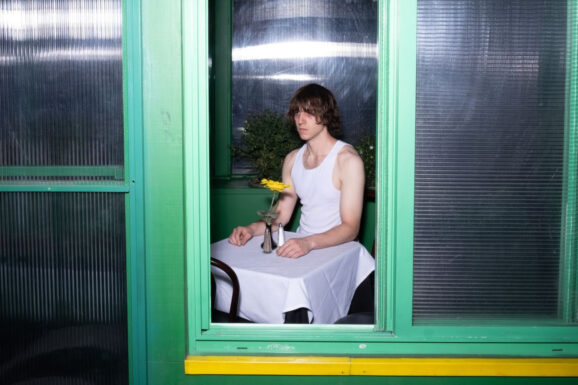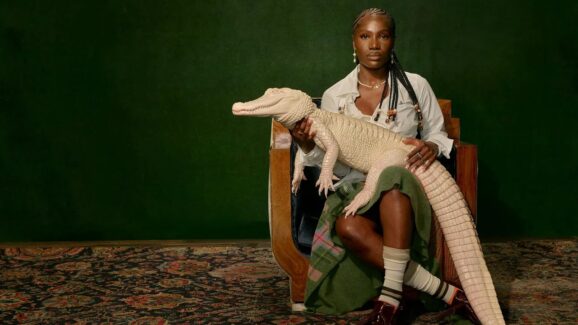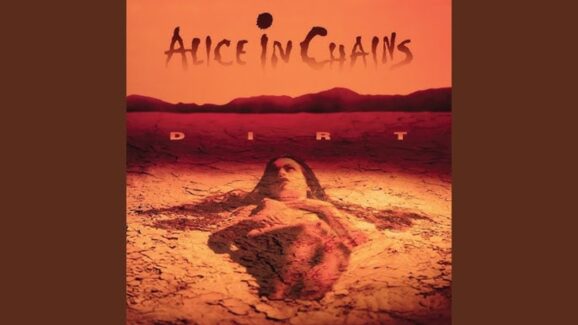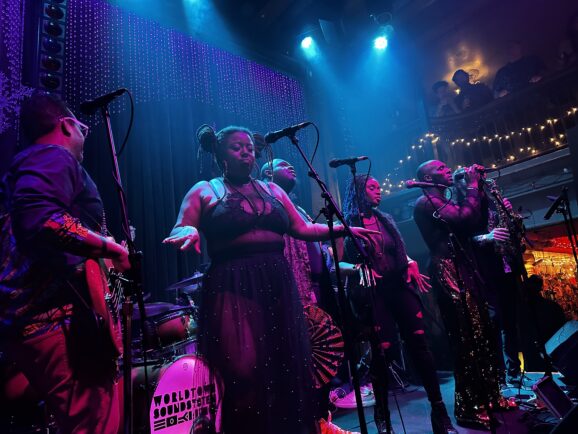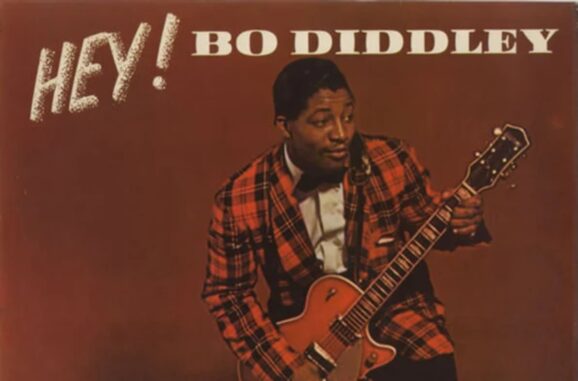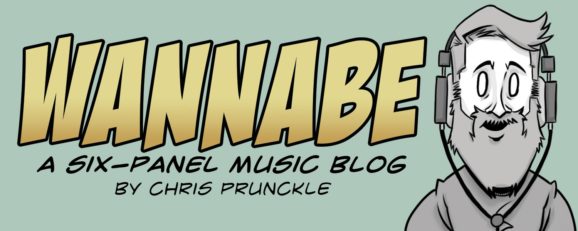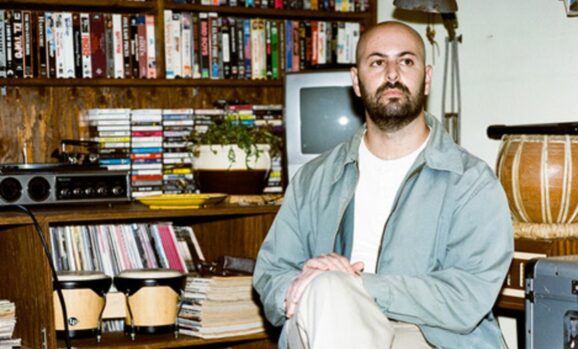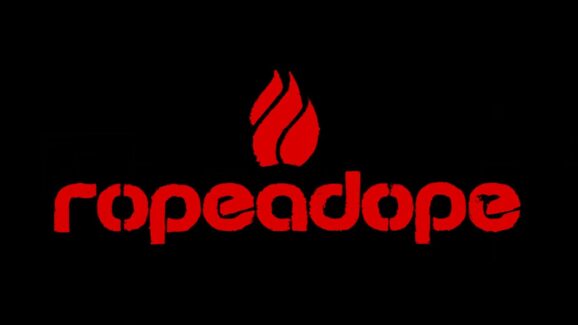There is an expression “if you know, you know.” In the case of Phoenix’s The Dirty Drummer, for those who know, this venue has quickly become one of the most respected venues in America and one of the most genuine Phoenix bars/eating places: both past and present.
Resting ordinarily in a stucco plaza near a commercially infused box store area of east central Phoenix, The Dirty Drummer is easy to drive by miss. However, the outside mundane environs dissipate when you walk through the doors. Hand-carved wood signs, diagonal wood paneling, 80s-era neon beer signs, classic parquet dance flooring, and vintage Mission-style lamps give the venue a nostalgic panache.
Dirty Drummer has been around for a long time—way back to the 1970s when it was a 14-location restaurant/bar in the Phoenix area that was the home of many a good time eating and drinking place until the last one still under that name closed on 44th Street.
The late founder’s daughter, Dana Armstrong, and two partners reopened the 44th Street location in 2019 with a modern meets vintage twist and a music-centric theme, gradually leading to more local and national music booking. Armstrong was a locally known respected DJ who hosts the long-running Valley Fever night at Yucca Tap Room, Crescent Ballroom, Handlebar J, and Rhythm Room and is also a talented graphic designer and creative director who has implemented the feel and imagery of vintage country album fonts and colors into the Dirty Drummer brand. The results have played out remarkably.
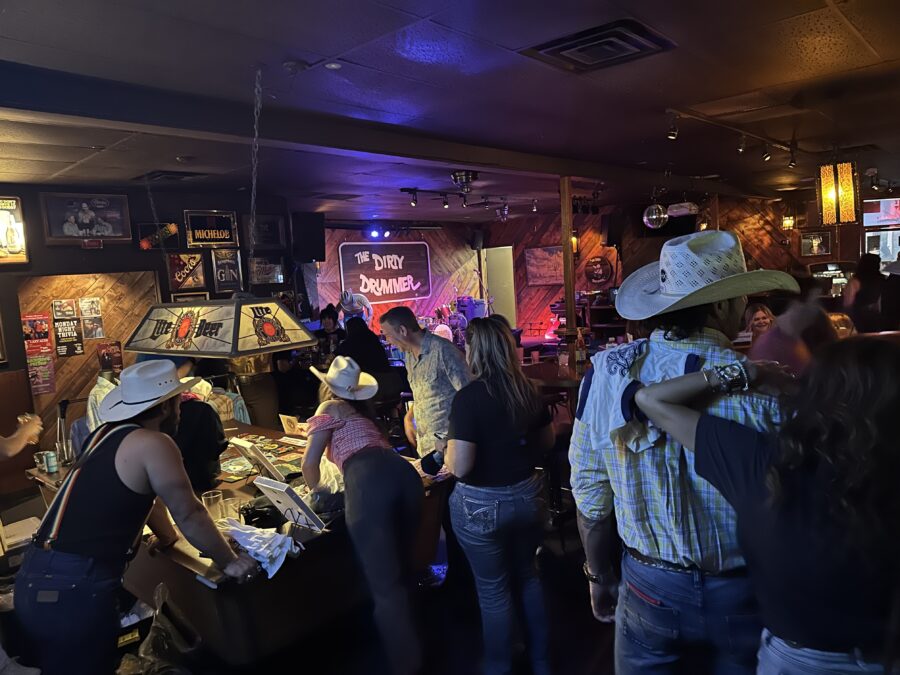
Musically, The Dirty Drummer has championed the independent spirit of sepia-toned imagery or ramblin’ roadhouse musical shenanigans. But it has also welcomed relevant artists of the Americana scene; the venue is a valuable tastemaker. Think modern labels like New West, Bloodshot, Fluff & Gravy, and Colemine, where the past meets the present while avoiding pop culture cliches – The Dirty Drummer has those genres and more covered. Good music is good music, and they book it accordingly. National touring artists that have played the Drummer stage include Jesse Daniel, Jenny Don’t & The Spurs, Petunia & The Vipers, Emily Nenni, Night Beats, Margo Cilker, Melissa Carper, Gruff Rhys, Vandoliers, Norm Hamlet, and even Charley Crockett came up to sing a couple of songs when swingin’ through town.
Arizona has a rich musical history through many classic country artists, including Waylon Jennings, Lee Hazlewood, Sanford Clark, Linda Ronstadt, Marty Robbins, and modern-day artists like Dierks Bentley. But embracing its “big sky” geography by curating that sound with a fiercely independent spirit, one is sure many a venue in Austin and Nashville probably wishes they had a piece of that history to build around.
There is also a run of regular local artists who are creating their own music scene here at The Dirty Drummer, not unlike the most famous one that was at Tempe’s Long Wongs in the 90s, where fellow artists would champion each other through sit-ins or co-billings. It is also a place where the hosts are vested in each artist who performs and treats each with down-home hospitality not found in today’s Live Nation/AEG-controlled venue monopoly. The artists seem to want to return routinely and often are seen wearing Dirty Drummer gear on the road.
While many consider it a cozy restaurant/bar that serves arguably the crispiest and tastiest wings in town (there’s a grilled option, too), The Dirty Drummer’s story seems to be just getting started. For this edition of These Walls, Glide spoke with Dirty Drummer co-owner/creative director/talent buyer Dana Armstrong about her insightful take on country and what makes The Dirty Drummer so worth stoppin’ by..
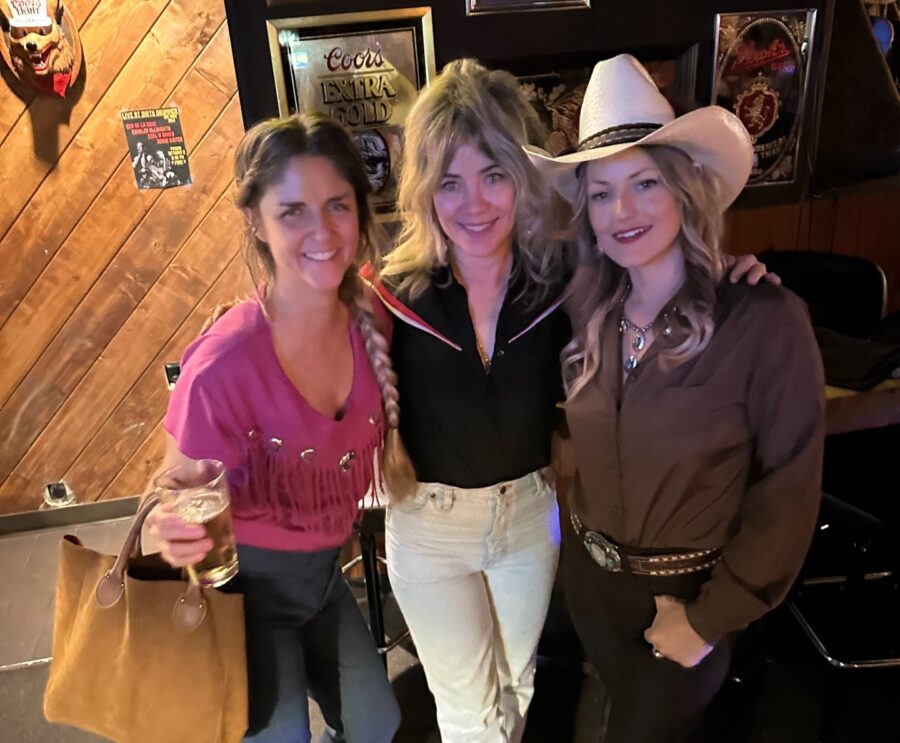
The Dirty Drummer has a rather legendary history in the Phoenix area. You and your team have been successful in keeping the legacy alive and establishing it as an important venue for local and national touring acts. Although the current tag is “eating and drinking place”- it’s also very much a “listening ‘place too – What is the bind that brings the musical acts that perform there together? What do you look or listen for when considering an artist to host?
My country night started initially with a network of talented and musically like-minded friends like Bindle Stiffs, Flathead, Chip Hanna, Tony Martinez, Jimmy Pines, DJ Johnny Volume and more. But generally I’m still booking a network of friends on a local and national level. Most of the bands and DJs we book at The Drummer, no matter what the genre, are generally part of a longtime local Phoenix friend network. If they’re good and they’re nice, we’ll book them.
My first DJ night incorporated all kinds of music from the 1970s and 80s. I’ve always collected all kinds of records: classic and soft rock, R&B and funk-jazz, disco, hip hop, punk rock/ alternative in my early years, and really anything that appealed to me, usually between 1972 and 1982. Each phase evolved into the next soundtrack to whatever we were up to in that phase of our lives.
So, I don’t draw a hard line between country and other music genres. It all comes from essentially the same place, and it blends together. So it’s hard to label the stuff that I’ve been booking, it’s been called Outlaw Country, Alt-Western, Americana, but I still just call it “country music.” There’s no need to add a qualifier when it is real country music.
We book musicians who are dedicated and immersed in their art, and present that from recording to stage. They have the same goal we do: to create an environment through not only the soundtrack they provide for the night, but the whole experience. Whether playing originals or covers, their commitment and delivery are essential to engaging an audience. We do all we can to collaborate with the bands to highlight what makes them who they are and what makes the night or day as special as possible. The main goal is always to have a good time, but building upon relationships and fortifying the growing national network of country artists who are on the same page makes it even more fulfilling. We are a place that thrives on diversity. I am so proud and thrilled to be able to book the bands that we have—the increase in female-fronted bands is awesome, and their talent is off the charts.
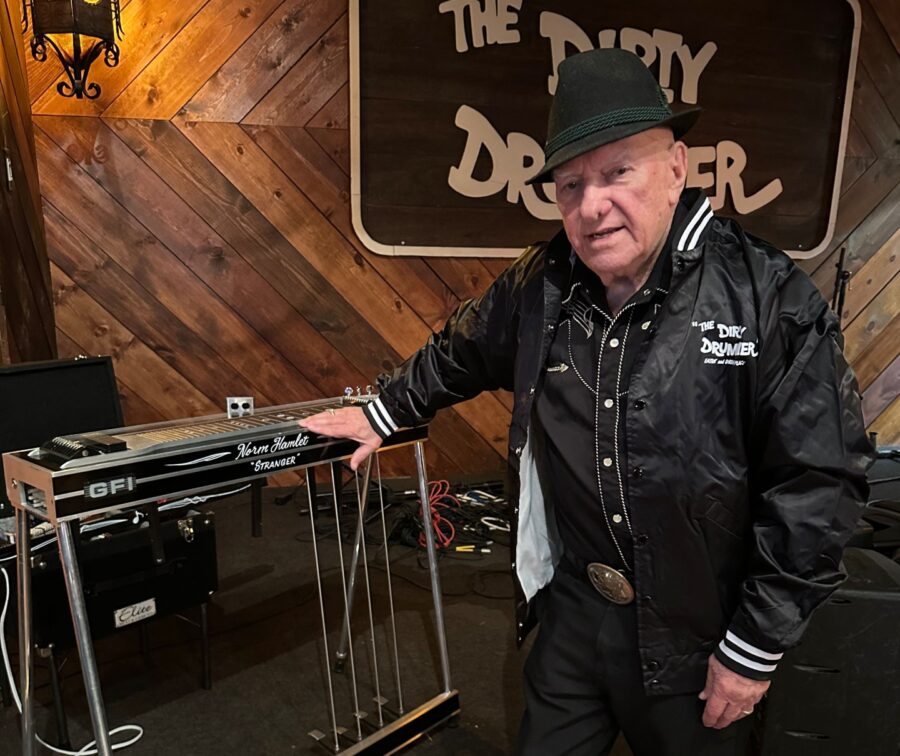
I think that accessibility and exposure to more music via digital online music platforms like Youtube, Spotify, Sirius enable everyone to instantaneously watch or listen to not only the foundational artists, but to the most obscure country and roots music, and that opens a lot of eyes to a much wider lens on country music. I think the diversity that is growing within country music further validates the depth and breadth of this genre, and that is reflected in the industry and who we get to book here at The Drummer.
I’ve never taken seriously the fans of country music who secretly (or not so secretly) celebrated the homogeneity of it. Now those people are becoming part of a subset. The “good old boys club” is out of trend, and the redneck connotation that made it a hard sell is fading into the past and giving way to new or previously overlooked artists who represent some of the top talent of this era. It’s expanding the message, the tone, the references, and the experience. This doesn’t at all diminish the legend and impact of the foundational greats like Hank Williams Sr., George Jones, Merle Haggard, Buck Owens, Waylon, Wilie, Johnny Paycheck, etc. but it does add more to the mix.
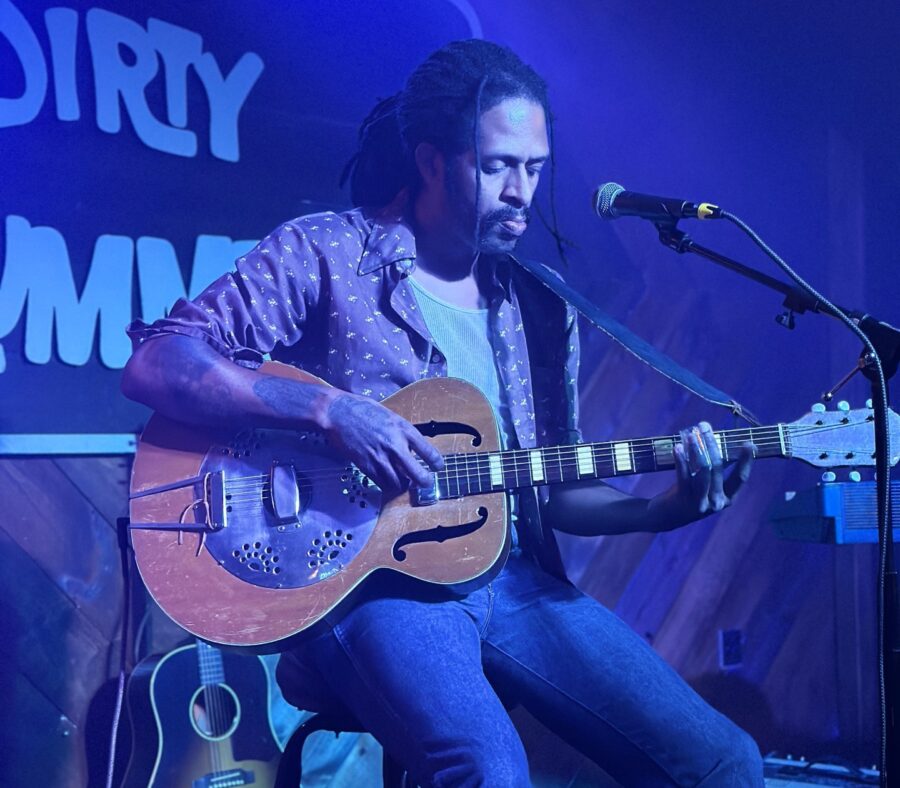
Arizona-based artists like Brea Burns, Taylor Glasheen, Joe Baker, Bobby Perez, Mario Moreno, and August Manley have had a very important role in curating the sound and giving the venue its voice as well. To you, what musical characteristics do Arizona artists have that you might not find in say Austin or Nashville?
Arizona is an independent-minded state, and that is reflected in the music that is made here. It is not formulaic; it’s open and evolving right before our eyes. Arizona Country today pulls inspiration from outlaw country, desert country, old western music, old-time, cumbia, traditional Mexican music, punk rock, blues, rockabilly, and Indigenous music. There are a lot of up-and-coming artists and bands here who are coming out and supporting each other but have their own distinct voice, writing, and sound.
Joe Baker, for example, is a record-collecting country music historian who specializes in Arizona music. That definitely impacts his sound and his band, The Lazy Aces, which is made up of long-time musicians.
You can find a common thread in unique Arizona country music that links musicians from Sanford Clark, Duane Eddy, and Waylon Jennings to Meat Puppets, Bruce Connole, Flathead, Al Foul, and Junction 10. That’s Arizona Country.
Also, given your deep knowledge of Arizona musical history, who would you have most liked to have performed at the venue, past and present?
Waylon Jennings, Peso Dollar, Stevie Nicks, Linda Ronstadt, Sanford Clark. How incredible would it be to see any of them on the Drummer stage?
The Dirty Drummer has soft rock nights and has booked punk bands and other eclectic artists aside from Americana/country that most might quickly identify only with playing there. Why is it important for you to keep it diversified and not be labeled a certain type of music room?
It’s all part of creating an environment. I basically will book any band if they’re really good and they’re nice. All music is interconnected in some way. Whether it’s through sampling, or covering/adapting an older song, or if it’s a less tangible connection—how it makes you feel, the inspiration coming from within the artist and how they express it—it resonates in some way. To me, that is what matters when listening to music and booking bands. They’re setting the tone in the room, and we want to maintain an energy and tone that feels good. I think a lot of people who have never liked country music end up with a new opinion if they see some of the bands we book here. There is a stereotype that is unappealing to a lot of people, but that is not what we are building on here.
I think collecting records and DJng for a lot of years gave me a broad perspective on how lines between genres are really blurred, and most genres have the same roots. There is so much cross influence, that it’s more about the quality of the songwriting, musicianship and delivery.
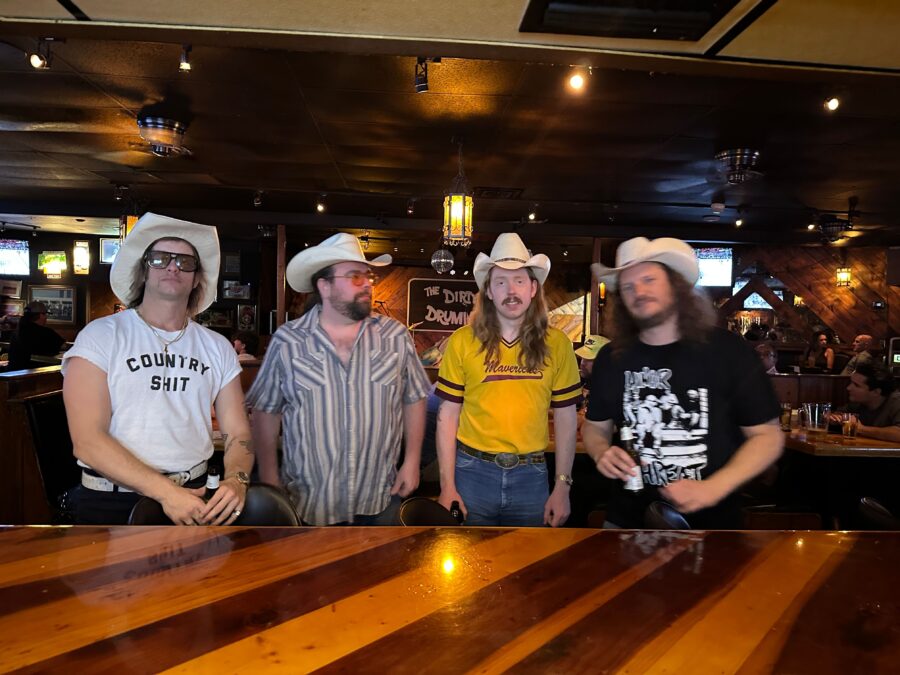
So, there is definitely inclusivity in many of the artists who perform. The late Lavender Country was slated to play, and you recently booked Lawrence Rothman and Gruff Rhys. Essentially, the venue is as punk and indie as it comes—what has been some of the most positive feedback from artists who have performed regularly at Dirty Drummer and allow certain artists to return regularly?
It’s a different experience than seeing a band at a space that is strictly a venue. It’s a more organic environment; sometimes it feels like being in the band scenes in a movie like Roadhouse or Thelma & Louise. We do adapt the layout when needed, but it is a looser, more casual venue, and there is a dance floor. The room can be modified to suit intimate seated shows, full two-step dance floor, DJ dance nights, or standing room only punk/metal shows. We use our disco ball and fog machine indiscriminately for all events.
We might be kind of a stepping stone to a larger venue, since we have become a hub for authentic music and are willing and able to promote the shows locally in order to generate a Phoenix following for touring bands.
We also turned the old office into a green room with a door to the stage. I have a lot of old posters I made for past events on the wall, so it’s kind of cool that bands can often see themselves or their friends on the posters from many years ago, it kind of helps to further solidify the community, locally and nationally. We are finally seeing the niche genre that we were all a part of become mainstream. We have most of these bands on our house playlists. There are so many more options to choose from than 20 years ago.
We are an inclusive and diverse business in general, and that is echoed in our music booking. A lot of feedback we get is about the design of the bar, our attention to the artists, our ability to promote to a niche but growing audience, and the food. We book music that we enjoy and respect, so it makes it easy to support them. I’m really excited about the number of amazing new female country artists now.
What have been some of the most rewarding shows you’ve hosted from both a performance aspect and audience appreciation?
One of my favorite shows to host is our annual Norm Hamlet and Mario Carboni show. Norm was Merle Haggard’s pedal steel player and band leader for 58 years. Any time you hear pedal steel on a Merle Haggard song that is Norm—he is turning 90 soon. Mario is a young, accomplished honky-tonk piano player and is probably the most extraordinary musician we’ve had on The Drummer stage. The two of them travel around the country together in a 1963 tour bus. Norm is always gracious and willing to recount fascinating stories of being an integral part of one of the best times and best bands in country music history. Our tradition is to walk to IHOP after they play— that is the latest I stay up all year, but it doesn’t seem to faze them! It’s an honor and a thrill to have that kind of living legend here at The Drummer, and it’s really fun to see the audience grow each year, with an increasingly younger demographic singing along to old Merle songs.
August Manley’s Waylon Jennings Tribute is also one of the most rewarding shows to host. It brings together a lot of old and new Arizonans, and more than any other night, it makes me feel like we’re really time-traveling. People love August Manley, and he really helps to transport the bar back to the days of Waylon at Mr. Lucky’s in the 70s. It’s magical, and I always imagine that my dad would have absolutely loved it, not just because it would bring back memories for him but because it’s always a rowdy packed house.
Another special show featured two talented traditional country singer-songwriters Luke Bell and Matt Kinman. They played in March of 2022, six months before Luke passed away in Tucson. They played a daytime show at The Drummer and blew everyone away. Luke was well-known and respected in the country music scene. He had a true songwriting gift, and we’re grateful to have hosted him at The Drummer and will always miss not hearing what music would come next from him. Many of his songs are on our playlist.
The country and Americana scene has exploded in recent years to the mainstream, although there has always been all types of people playing those sounds. What do you attribute that to?
I think the pendulum is just returning to more authentic and informed artistry. Mainstream country music got so artificial and silly in the 2000s. If people weren’t already savvy to the underground “real country” scene, they were shamed out of supporting the absolute nonsense that pop country had become.
More than ever, people have access to previously obscure music and imagery from the past for inspiration and context. A lot of my musical and design taste was shaped heavily through record collecting, but no one has to do that anymore to be exposed to the most glorious images and music from all decades. What used to be hidden treasures are now what is shaping mainstream culture very quickly.
I hope that it is more than a trend because there are so many excellent new country bands that either perfectly tap into a specific era from the past, meld more obscure parts of country music with other genres, or have a timeless traditional sound. I’m so excited about the direction of country music today.
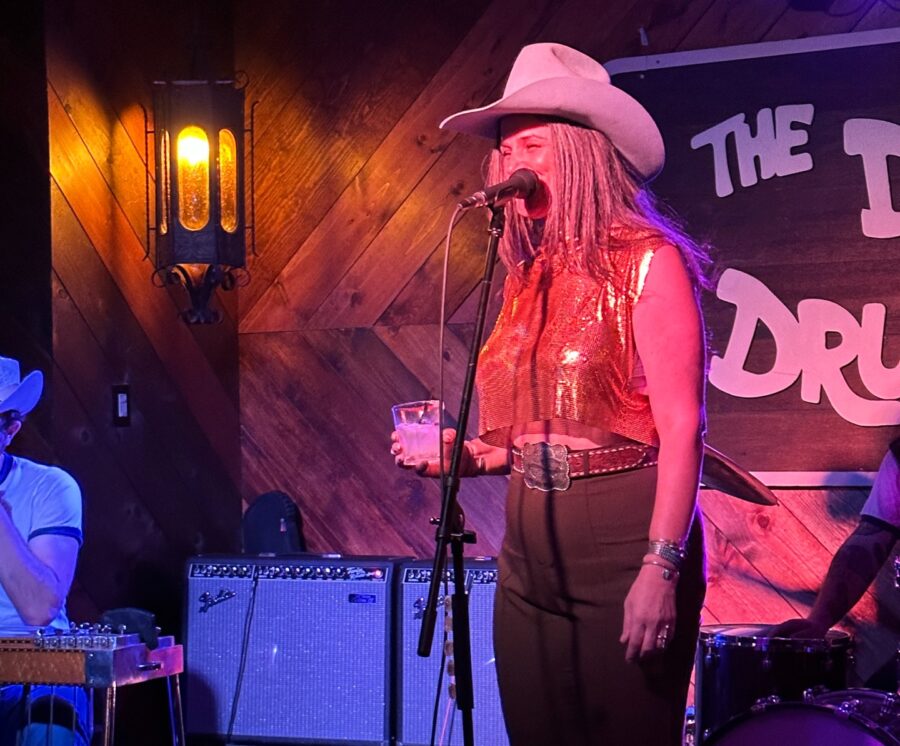
Has there been any learning curve going from being a restaurant with regional artists to booking national touring artists?
The Dirty Drummer was not a music venue before we bought it–we built the stage and added a dance floor. I just continued booking the local and national bands that I had worked with while running Valley Fever Country Music Night, which I did for 10 years and was the real groundwork for booking The Drummer. But now, it feels like the venue part of The Dirty Drummer has become its own entity and has the intangible energy that is so important in putting Phoenix’s underground country scene more solidly on the map.
But yes, there has been a learning curve in adapting an established 45-year-old bar & grill into a prosperous and ambitious music venue. I consider the three spheres of The Drummer to be 1. Bar 2. Restaurant 3. Venue. The venue includes not just live music but also sports and other events we host. Our goal is to have each sphere working efficiently and collaboratively. They often overlap, but not always. We have a broad customer base and try to maintain a welcoming and positive experience for everyone.
Instagram can be tricky, pivoting/toggling between pictures of grilled wings to good timin’ honky-tonkers and back to the Phoenix Suns. But I’m determined to make it work. Music, sports, food & drinks, all things intended to bring people together. It’s fulfilling to me to see such a diverse room of people hanging out together. It’s an Arizona bar.
You do most of the graphic design and show posters on your own that nail the aesthetic of the music performed there and the restaurant’s 70s and early 80s period. How do you keep your creative fire going with your show promotional flyers and graphics?
I use design to convey the experience of the event. If the band sounds like a band from 1978, I’ll make the poster look like it was made in 1978. But we have so many events, sometimes bands will provide their own posters for us to use. I wish I had time to really design all the posters as well as I’d like to. Show posters definitely make a difference and can make or break the turnout of a show. We have to hook people right away, especialIy since we’re booking some bands that we totally believe in, but are relatively unknown in Phoenix.
I should mention that with AI design apps, the fire is a little diminished because the skill it used to take to create or recreate a vintage-inspired poster is now moot. Many of my favorite poster styles are everywhere now, and the impact can feel diluted. But it’s kind of analogous to the music we’re promoting. If it’s done well, with skill and experience behind it, it will stand out.
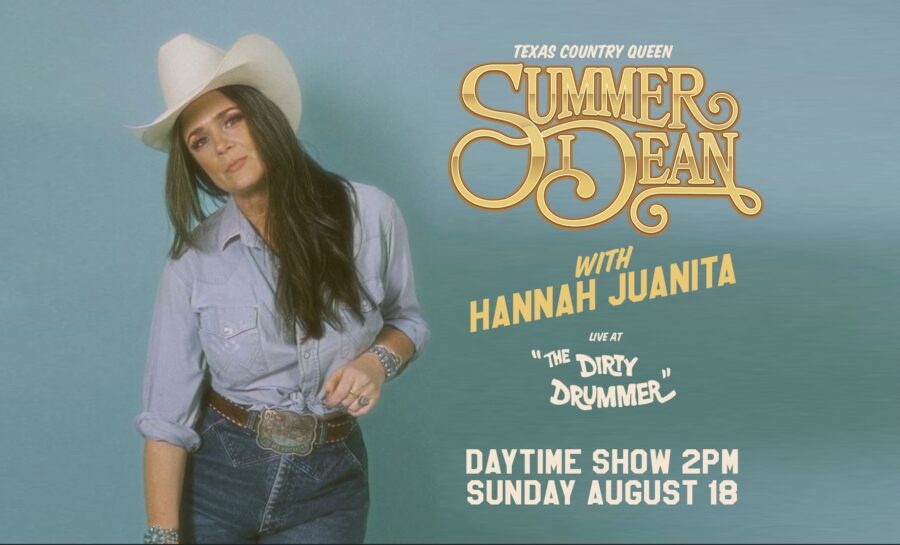
Can we expect to hear a Dirty Drummer live volume series or curate a music label or streaming station?
Absolutely. We plan to broadcast and record some of the live shows, with band interviews. We’ve also been talking about a record label. First, we are putting out a 45 with our theme song “The Beat Goes On” by Tony Martinez on the A side and TBD B side.
How come the great Ronnie Milsap, with his knack for pop and “yacht’ rock, never had his Johnny Cash moment? Any other artists you feel never got their due moment?
Milsap is too complex for a mainstream explosion. He is kind of a musical chameleon, putting out albums with various genres within one album. He’ll go from straightforward country to disco, R&B, and funk, and he tends to lean heavily on ballads. If he had stuck to one sound, like Kenny Rogers did, or doubled down on one sound, like the mid-tempo soft rock bangers, and less on the bluesy ballads, he would have had more mass appeal. Also, I’m not sure why he never had a beard, but that probably would help as well.
Some who deserved more recognition: Moe Bandy, Bonnie Owens, Gene Watson and John Conlee.
For those in Arizona or visiting, head on over to The Dirty Drummer website to see what’s going on!

